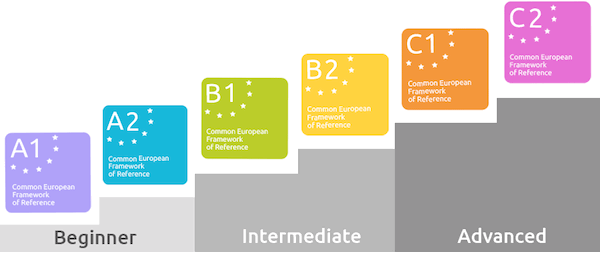It is important for this project to remind us about The Common European Framework of Reference for Languages (CEFR) which is crucial in vocational language learning, it is a document that describes in a comprehensive manner the competences necessary for communication, the related knowledge and skills, and the situations and domains of communication. The CEFR defines levels of language proficiency in different aspects and provides a detailed description of each language level and accompanying skills.
The main aim of the CEFR is to achieve greater unity among the EU members. The European Commission pursues this aim by the adoption of common action in the cultural field. The three basic principles of the Council of Europe’s language that are enumerated in the CEFR are as follows:
that the rich heritage of Member States, when adopting or developing national policies in the diverse languages and cultures in Europe is a valuable common resource to be protected and developed, and that a major educational effort is needed to convert that diversity from a barrier to communication into a source of mutual enrichment and understanding; that it is only through a better knowledge of European modern languages that it will be possible to facilitate communication and interaction among Europeans of different mother tongues in order to promote European mobility, mutual understanding and co-operation, and overcome prejudice and discrimination; that the field of modern language learning and teaching may achieve greater convergence at the European level by means of appropriate arrangements for ongoing co-operation and co-ordination of policies (2001: 2).
The CEFR provides a common basis for the elaboration of language syllabuses, curriculum guidelines, examinations, textbooks, etc. across Europe. By providing a common basis for the explicit description of objectives, content and methods, the CEFR is expected to enhance the transparency of courses, syllabuses and qualifications, thus promoting international co-operation in the field of modern languages.
Language learning in Member States should be compatible with the CEFR’s assumptions, which provide a basis for the mutual recognition of language qualifications, thus facilitating educational and occupational mobility. The CEFR is increasingly used in the reform of national curricula and by international consortia for the comparison of language certificates. A European Union Council’s Resolution (Nov 2001) recommended the use of this Council of Europe instrument in setting up systems of validation of language competences.

